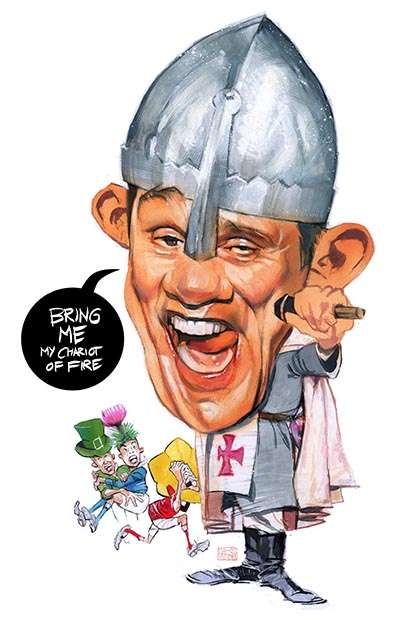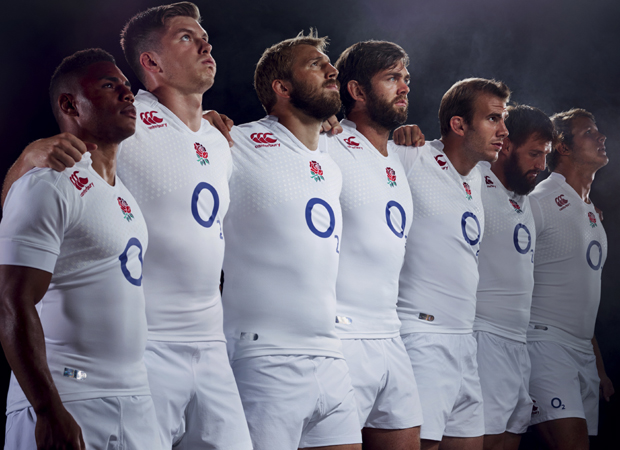
 Having (reluctantly) once had to regale a packed Marseille restaurant with a solo rendition of God Save the Queen on the eve of a France v Australia Test as a forfeit a few years back, all I can say is that it was a lonely place. I didn’t canvas the diners for their opinion because the stunned looks and occasional hoots of derision said it all.
Having (reluctantly) once had to regale a packed Marseille restaurant with a solo rendition of God Save the Queen on the eve of a France v Australia Test as a forfeit a few years back, all I can say is that it was a lonely place. I didn’t canvas the diners for their opinion because the stunned looks and occasional hoots of derision said it all.
However, while the French associate God Save the Queen with the English, my fellow countrymen, and women, are becoming increasingly restive about adopting the anthem of the United Kingdom as the anthem of England.
A couple of weeks ago the idea of replacing God Save the Queen with an English national anthem gained traction when Parliament adopted a bill introduced by Chesterfield MP Toby Perkins.
He argued that it was “incongruous” that the English were singing about Britain as a whole when they were competing in sport against other British nations, like the Scots, Welsh and Northern Irish, who had their own, separate, anthems.
These, said Perkins, reflected their nation’s identity. He added: “It reflects a sense that we see Britain and England as synonymous.
“This not only denies us English an opportunity to celebrate the nation that is being represented, but it is also because the resentment among other countries within the British Isles who feel that England have requisitioned a British song.”
This view was opposed by Conservative MP Jacob Rees-Mogg, who said that it was a divisive move which could lead to the fragmentation of the UK.
“When…English crowds take St George’s flag rather than the Union Jack, to me that’s a matter of pity, of shame, that we are giving up viewing ourselves as one United Kingdom, whether we are supporting England, Scotland, Wales or Northern Ireland.”
 Rees-Mogg added: “These expressions of the individual nationalism are disuniting factor in our country – in a country that we ought to make more united.”
Rees-Mogg added: “These expressions of the individual nationalism are disuniting factor in our country – in a country that we ought to make more united.”
I don’t agree with Rees-Mogg’s view, and I suspect that he has never witnessed first-hand the often fierce but almost universally good-natured tribalism when the English play the Scots, Welsh or Irish in the Six Nations.
He fails to understand that alongside the common ground that binds the English, Scots, Welsh and Irish, there are ingrained historical differences, and that the English have as much right as any nation to celebrate their heritage. Furthermore, it should be no more incumbent on them, than on their Celtic neighbours, to be guardians of the United Kingdom.
Trying to suppress English identity will only encourage those who favour more extreme forms of nationalism – so let’s do what rugby crowds have always done, and sing instead.
With a politician’s eye for a popular cause, David Cameron soon attached himself to the campaign for an English anthem, with the Prime Minister backing Jerusalem – which is a song which celebrates England based on the William Blake poem, And Did Those Feet In Ancient Time.
It also has the merit of being less militant in its national identity than either Flower of Scotland, the Corries song penned in the 1960s which celebrates a Scottish victory over the English at Bannockburn (in 1314), or the Irish national anthem, A Soldier’s Song.
It is the most popular English anthem according to previous polls, and a choice that I support.
However, the song should be named after the title of Blake’s poem so that it becomes more obvious to those who are puzzled by the reference to Jerusalem that the great English poet used as a metaphor for a better place.
If And Did Those Feet in Ancient Time was chosen it would also mean that those with a republican bent at Six Nations matches, or other sporting events, do not have to remain close-mouthed and defiant in their seats while all around them are singing.
At the other end of the spectrum, it would also allow an ardent England rugby fan like Prince Harry to be able to belt out an answer to his brother’s rendition, as Prince of Wales, of Land of My Fathers.
It is worth noting that it has been the unofficial anthem of the England cricket team for more than a decade, although frequently they also sing God save the Queen before Tests.
Other, lesser, candidates include Land of Hope and Glory, There’ll always be an England and the hymn, I vow to thee, My Country.
As for the British anthem, it would be up to the Scots, Welsh, Northern Irish, and the English, whether agreement could be reached, after their respective national anthems had been played, to join together in singing God Save the Queen.
That would be an indicator of just how united the United Kingdom is.


Latest News
George Skivington playing it smart at Gloucester

Latest News
English second tier gets rebrand

























You must be logged in to post a comment Login